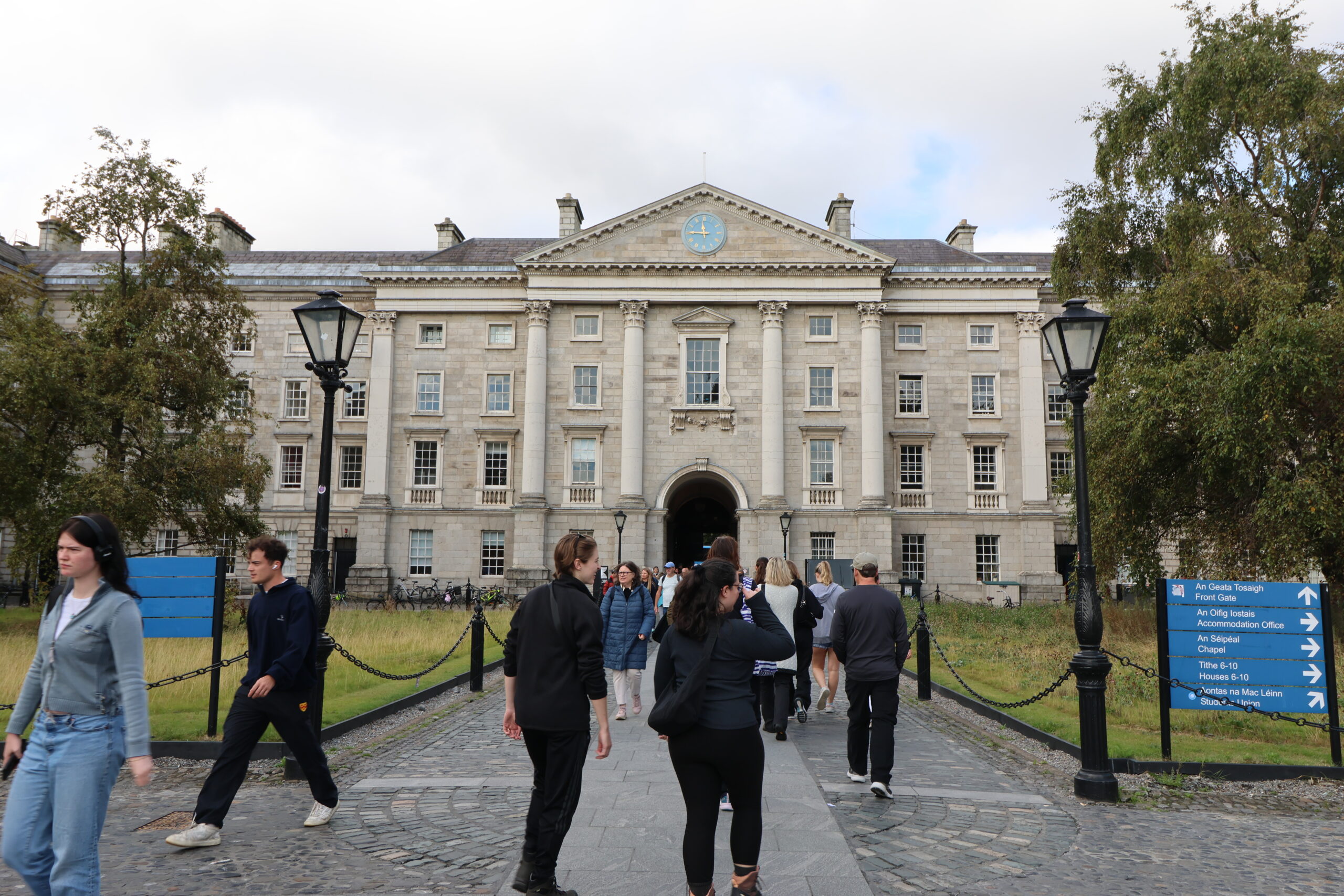While Trinity College Dublin often boasts itself as an international university, which is certainly true with Trinity being named the 16th most international university in the world, this is not without consequence.
With significantly higher tuition fees than Irish and other European students, international students represent a vital source of revenue for Trinity College Dublin. This financial incentive has fostered a perception that the university may be prioritising international students in various aspects, such as exploiting students with fees and accommodation.
To illustrate, undergraduate fees for non-EU students enrolled in a four-year course for the 2024/25 academic year range from €19,720 for Global Business to a steep €39,370 for those pursuing Clinical Speech and Language Studies. This marks a notable increase from the 2023/24 academic year, where the fees for the same courses were €19,280 and €38,480, respectively. These figures starkly contrast with the relatively modest averages of €5,681 to €8,371 paid by EU students. In addition to EU students paying significantly less overall, their fees did not increase between the 23/24 and 24/25 years.
The financial disparity is not just a matter of numbers; it reflects the broader dynamics and priorities at play in Trinity. The higher fees paid by non-EU students are crucial for sustaining the university’s operations, funding research, and enhancing facilities. In a competitive global educational market, attracting international students who are willing to pay these higher fees is seen as essential for maintaining Trinity’s standing as a leading academic institution.
Though international students are paying higher fees, there are perceived benefits to this arrangement—but it becomes a double-edged sword. On one hand, the financial contributions of international students, particularly those from countries like the United States, significantly bolster the university’s budget. These funds can be reinvested into the institution, enhancing facilities, funding research, and supporting various academic programs.
However, this financial dynamic also raises concerns about equity, particularly when it comes to admissions standards. As described at a Trinity Open event, there is a disparity in acceptance rates between international students, especially those from the United States, and EU students. While Trinity’s overall acceptance rate hovers around 34%, it has been suggested that the acceptance rate for international students can be as high as 60%. This discrepancy points to more lenient admission standards for international students, those who are paying significantly higher fees.
This perceived leniency in admissions for international students might make local students feel their admission chances are impacted by the university’s exploitative efforts to attract international students. From an economic standpoint, this makes sense; the more international students Trinity admits, the more revenue the university generates. However, this approach can also lead to a sense of unfairness among EU students, who may feel as if they are held to a higher standards.
This situation can be particularly frustrating for both local students and those from the EU. They may perceive their chance of gaining admission as reduced because the university is more incentivized to exploit international students who contribute more financially. This understood bias in the admissions process can lead to resentment and a feeling that the university is prioritising profit.
Another point on this inequity is that international students are prioritised on housing in Trinity Hall, Kavanaugh Court, and Dominick place. As an international student applying to Trinity, I was given assurances by the Global Room office that “All first year international students are prioritised housing.” For students coming from remote areas of Ireland, attending Trinity can be a daunting experience, much like it is for international students. They, too, are navigating a new environment, often far from home, and may find it challenging to secure accommodation, leading to an inability to engage with university life fully.
The prioritisation of international students in housing is also judged to exacerbate social and cultural divides within the student body. Expensive accommodations like Kavanagh Court, which often tend to cater more towards international students, particularly Americans, could be seen as part of this recognized inequality. This prioritisation contributes to a sense of disunity, where certain housing options are viewed as exclusive domains for those who can afford higher fees rather than being accessible to all students on a more equitable basis.
For Irish students from less affluent backgrounds, this situation can be particularly disheartening. While these students might not face the same tuition costs as international students, finding affordable housing in Dublin can be just as daunting. The perception that Trinity is more focused on accommodating international students who pay higher fees, rather than ensuring that Irish students have fair access to housing furthers a divide between these groups of students.
While this article has examined the negatives of international students at Trinity there are also several positive consequences: the influx of international students undeniably enriches the cultural fabric of Trinity College. With students from various backgrounds, the campus is a melting pot of ideas, languages, and traditions. This diversity fosters a global perspective among students, preparing them for a world that is increasingly interconnected.
However, this cultural enrichment comes with challenges. Integration and inclusion within the campus community can be difficult for all Irish, EU, and Non-EU students. Students from different backgrounds being treated differently, which is what is happening, may create divisions rather than promote unity.







